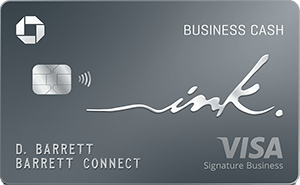
Register your business, get a DUNS number, establish trade lines and make debt repayments on time (early if possible).
Kelsey SheehySenior writer | Small business banking and credit cards, Paycheck Protection Program, consumer spending, and household finances
Last updated on February 26, 2024Assigning Editor | student loans, student loan repayment plans, and education financing

Many or all of the products featured here are from our partners who compensate us. This may influence which products we write about and where and how the product appears on a page. However, this does not influence our evaluations. Our opinions are our own. Here is a list of our partners and here's how we make money.
⏰ Estimated read time: 7 minutes
Business credit is a way to evaluate the financial strength of a company. A strong business credit score can help you secure better terms on business loans, lower rates on business insurance and more favorable terms with suppliers.
New businesses need to establish business credit and grow it over time. Some steps to build business credit are fast and easy, like setting up an employer identification number. Others require patience, like demonstrating a responsible payment history over time.
Here’s a step-by-step guide on how to get and build business credit.Monitor your business credit score, manage your cash flow, and get curated recommendations to drive your business’s growth.
Sign up for free
For new business owners, the first step to establishing business credit is to register your business.
This process will vary depending on your business structure and where you live. Some states do not require sole proprietors to register if you operate under your own name (though you may still need a local business license). If you start an LLC, you’ll most likely need to register your business.
Make sure you also apply for an EIN, or employer identification number, with the IRS. This business tax ID is required by the IRS for many businesses — and it may be necessary for taking other important steps, like opening a business bank account.
Getting a business credit score from Dun & Bradstreet requires you to first apply for a DUNS number. You can do this for free on Dun & Bradstreet’s website. [0]
Dun & Bradstreet . How to Get a D-U-N-S Number.Lenders and other businesses will often use this unique nine-digit number to look up your company’s credit profile and financial health before agreeing to do business with you. A DUNS number is also required to apply for any federal grant. [0]
There’s no need to apply for business credit with Experian and Equifax, though. Those companies start credit files for your company on their own based on borrowing information from lenders that report to these bureaus. They also pull in information from public records, like court filings.
It's possible to build strong business credit with a thin or low personal credit score. But your personal history is often key to unlocking financing that can grow business credit faster.
Lenders typically look at personal credit when evaluating applications for products like business loans and business credit cards. In part, this is because the lender wants to understand whether the borrower will be able to repay the debt if the business can't.
Business owners with solid credit will likely have financing options available to them even before they’ve established business credit. If you have a FICO score below 630, a secured business credit card may be a way to start building your business credit while you work to improve your personal credit.
In the meantime, look for non-debt solutions — like establishing trade lines (more on that below) — to help establish business credit.
Because issuers use your personal credit to determine approval, you can get a business credit card without an established business credit profile. Once you have a card, using it responsibly can help you build business credit.
Most small-business cards report activity to business credit bureaus, so on-time payments and low credit utilization (less than 30% of your available credit) will help build your business credit score. On the other hand, missed payments and delinquencies often negatively impact your business and personal credit scores.
Opening a business credit card early can help you start building credit sooner, which means you’ll have a longer credit history — and potentially a stronger score — in the future.
Payment history is the most important factor in determining your business credit score. Making debt repayments on time and in full will help you build a stronger business credit profile over time.
While on-time payments are good, early payment is even better. Dun & Bradstreet assigns better Paydex scores — which measure a business’s payment history — to companies that pay early.
Suppliers often extend trade credit, which allows you to pay several days or weeks after you receive the inventory. This type of accounts-payable relationship can boost your business credit score, provided your supplier reports payments to a business credit bureau.
You can set up trade lines with any small vendor, such as your water or office supplies distributor. If those vendors don’t report to a credit bureau, you can list them as a trade reference on your account, and Dun & Bradstreet will follow up to collect your trade data.
Small-business loans can boost your business credit if you make all your payments on time, but not all lenders report to business credit bureaus.
If you’re taking out a business bank loan or an online business loan, your lender most likely reports your payment history. Merchant cash advance companies typically don’t.
If you need a loan, ask potential lenders whether they report data to business credit bureaus. Weigh their response against other factors of their offer, like interest rate, to find the right fit.
We’ll start with a brief questionnaire to better understand the unique needs of your business.
Once we uncover your personalized matches, our team will consult you on the process moving forward.
Judgments, liens and bankruptcy filings in your business’s name all negatively impact your business credit score. Unpaid taxes or business debt can result in a lien, granting creditors a legal right to seize your property to satisfy the debt. And unpaid debt may eventually result in a court ruling — or judgment — against your business to collect the debt.
These negative marks on your business credit report can haunt you. Experian, for instance, keeps bankruptcies on business credit reports for nearly 10 years. Tax liens, judgments and collections can remain for almost seven years. [0]
As with personal credit, it’s smart to keep tabs on your business credit report to ensure all of your information is accurate. Check your business credit score with all three main business credit bureaus: Dun & Bradstreet, Experian and Equifax. Then, ensure all trade lines are accounted for and report any errors — whether they’re to your address or incorrect negative marks — to the respective business credit bureau.
Business credit is a history of your company’s debt repayments. A strong business credit history and business credit score show other entities that you’re a reliable borrower. That can help you qualify for better business loan interest rates and terms, lower business insurance premiums and more.
How do you build business credit fast?Registering your business and applying for a business credit card can help you start building business credit right away. As your business grows, establish trade lines with your suppliers and make sure to borrow from lenders that report payments to business credit bureaus.
Advertisement
A business line of credit can finance short-term expenses, like payroll or inventory. Both traditional and online lenders offer business lines of credit.
Use NerdWallet’s business loan calculator to estimate monthly principal and interest costs based on the loan amount, loan term and APR.
NerdWallet Home Page Finance Smarter Credit Cards Financial Planning Financial News Small BusinessDownload the app

Disclaimer: NerdWallet strives to keep its information accurate and up to date. This information may be different than what you see when you visit a financial institution, service provider or specific product’s site. All financial products, shopping products and services are presented without warranty. When evaluating offers, please review the financial institution’s Terms and Conditions. Pre-qualified offers are not binding. If you find discrepancies with your credit score or information from your credit report, please contact TransUnion® directly.
NerdUp by NerdWallet credit card: NerdWallet is not a bank. Bank services provided by Evolve Bank & Trust, member FDIC. The NerdUp by NerdWallet Credit Card is issued by Evolve Bank & Trust pursuant to a license from MasterCard International Inc.
Impact on your credit may vary, as credit scores are independently determined by credit bureaus based on a number of factors including the financial decisions you make with other financial services organizations.
NerdWallet Compare, Inc. NMLS ID# 1617539
California: California Finance Lender loans arranged pursuant to Department of Financial Protection and Innovation Finance Lenders License #60DBO-74812
Insurance Services offered through NerdWallet Insurance Services, Inc. (CA resident license no.OK92033) Insurance Licenses
NerdWallet�™ | 55 Hawthorne St. - 10th Floor, San Francisco, CA 94105